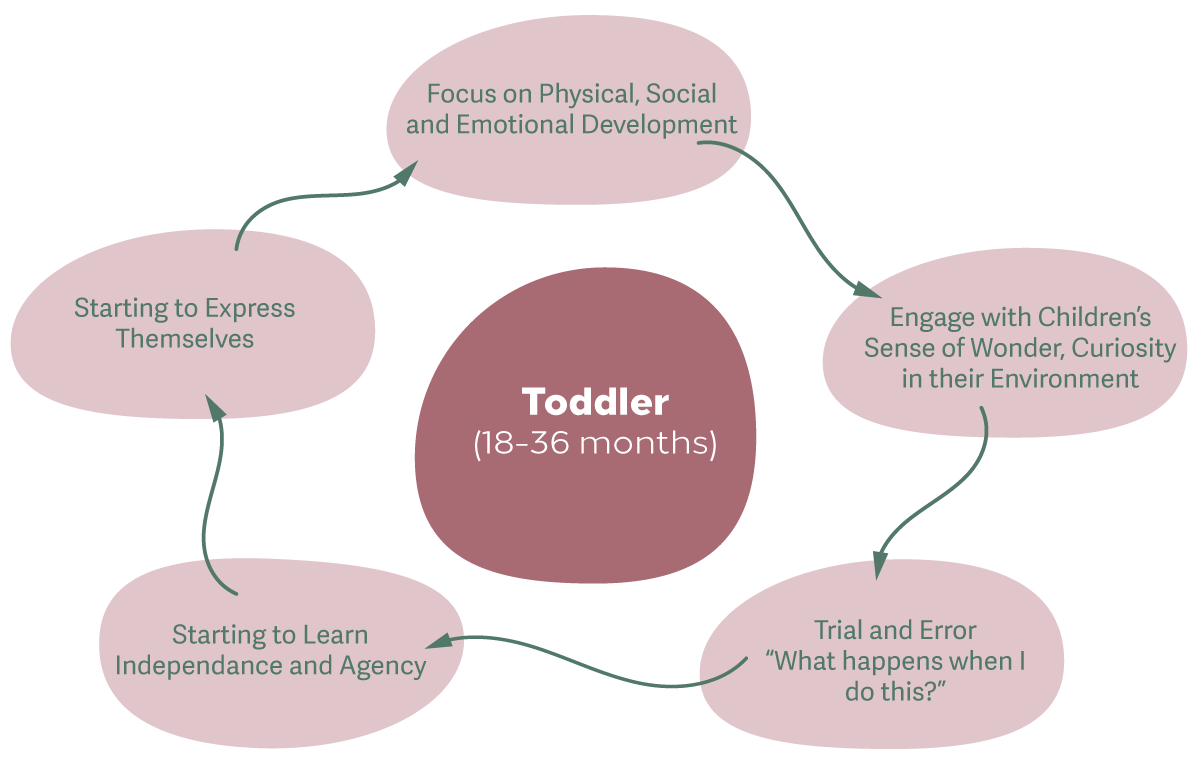
Toddlers (18 - 36 months)
At this age, your child is beginning to discover a sense of awe and wonder for the world and their surroundings. We curate a safe environment where your child can continue to explore and develop, making sure there’s plenty of room for experimentation while they develop their sense of independence and individuality.
Physical, Social, and Emotional Development: This period emphasizes the comprehensive growth of toddlers, encompassing their physical skills (such as gross and fine motor skills), social interactions (playing with peers, learning to share), and emotional understanding (recognizing and managing feelings).
Engagement with Environment and Curiosity: Toddlers are naturally curious and eager to explore their surroundings. Caregivers should provide opportunities for them to engage with various stimuli in their environment, fostering their sense of wonder and curiosity about the world around them. This might be a time for parents to feel a little overwhelmed and that’s okay! Your child is beginning to see the wonderful world and all that’s in it. We’re here to help foster that and grow their constant sense of wonder and explorative questions.
Trial and Error Learning: Toddlers learn through experimentation and exploration. They are likely to engage in trial-and-error behaviors, testing out different actions and observing the consequences. This process helps them understand cause and effect relationships and build problem-solving skills. This is a time where we help the child foster good habits and healthy boundaries to ensure the child thrives in a safe and stimulating environment.
Developing Independence and Agency: As toddlers grow, they start asserting their independence and seeking autonomy. Caregivers should support this developmental stage by allowing toddlers to make simple choices, encouraging self-help skills (like dressing themselves), and providing a safe environment for exploration.
Expressing Themselves: Toddlers are beginning to develop language skills and are better able to express their thoughts, feelings, and needs. Caregivers should encourage and support their communication efforts, whether through words, gestures, or other forms of expression, to help toddlers feel understood and valued.











